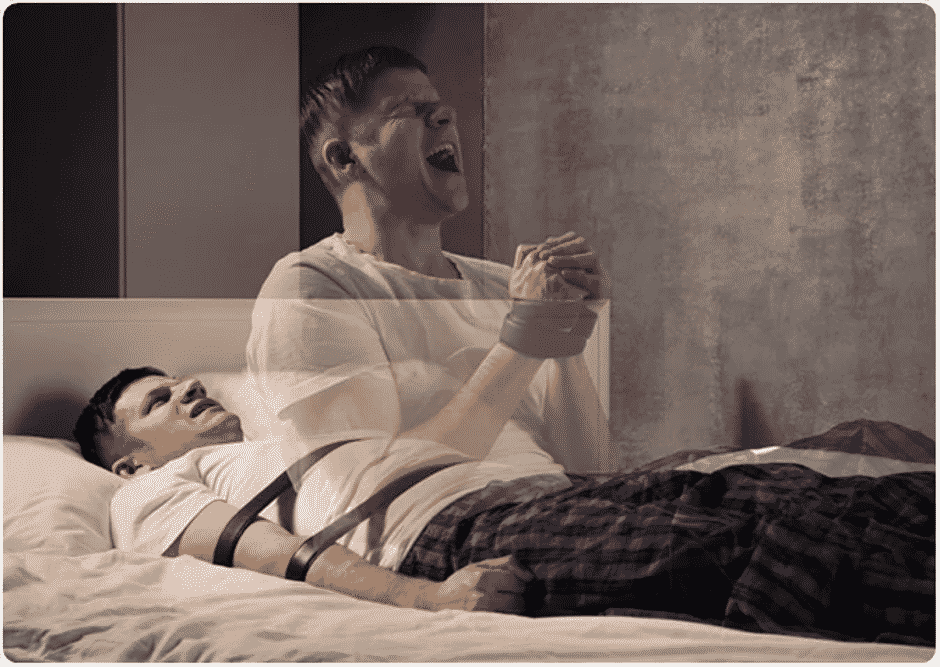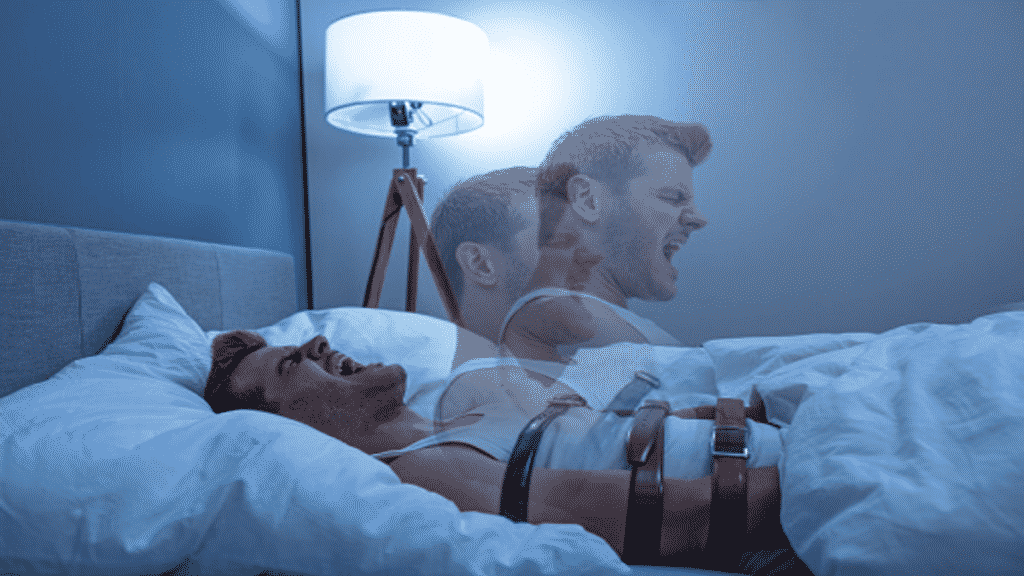Symptoms Of Sleep Paralysis
- You’re jerked awake in the middle of the night, afraid of whatever nightmare you’ve just had. You attempt to sit up but find that you cannot move your body. You try turning your head in the direction of your wife in the hopes of getting her attention, but you rapidly discover that you are unable to move any part of your body, let alone speak. Not even a silent plea to your wife, a frantic request to catch her attention so she can rouse you from your frightful situation.
- You sense a presence in the room, a threatening shadow in the corner, at the foot of the bed, or even on your chest. The crushing weight of some unseen force pressing you down prevents you from breathing. As though you’re connected to a series of vehicle batteries, an electric buzz permeates your entire body. You battle the paralysis with all your strength, attempting to overcome the weight on your chest, but to no avail. You try to fall back asleep, but the electric hum grows louder and louder as if every nerve in your body is being tugged wire-tight, swelling to an insufferable crescendo.
Many people have reported similar instances of sleep paralysis throughout history. While descriptions vary to varying degrees, most stories include waking up unable to move any muscle except the eyes, a sense of a menacing presence in the room (commonly described as a shadowy figure), a feeling of significant weight on one’s chest, and an overwhelming sense of dread and helplessness.
How Sleep Paralysis Affects You?

As one transitions from sleep to waking, they may have sleep paralysis, which causes them to be unable to move or talk. This can happen at one of two times:
i. As One Is Drifting Off (Hypnagogic Or Predormital Form):
In most cases of sleep paralysis that occurs as one is falling asleep, the condition is linked to the sleep disorder narcolepsy. As the body relaxes and enters the stages of sleep, the mind remains awake, aware that rest is taking place but unable to respond by movement or voice.
ii. As One Awakens From A Slumber (Hypnopompic Or Postdormital Form).
REM sleep causes the brain to become more active, and most individuals dream. As a response to keep our body from carrying out our fantasies and perhaps killing ourselves or our bedpartners, voluntary muscles become paralyzed (atonia) during this time.
People experience sleep paralysis when they awaken before the REM stage, leaving them aware of their surroundings but unable to move or talk until the REM cycle is completed. The inability to move places a person in a vulnerable position, causing them to get terrified due to their vulnerability. Many people who have sleep paralysis have auditory and visual hallucinations during these episodes, caused by the brain activity still being in REM sleep (where dreaming occurs).
Getting Rid Of Sleep Paralysis
While sleep paralysis is alarming, it is often safe for your health. However, there are a few therapy choices to consider:
Get Proper Sleep At Night:
Poor sleeping habits most frequently cause sleep paralysis. As a result, make an effort to obtain enough sleep each night. Also, keep your sleep schedule consistent, i.e., go to bed at roughly the same time every night and wake up at approximately the same time every morning.
Any Mental Health Difficulties, Like Stress Or Bipolar Disorder, Should Be Addressed:
Examine your sleep paralysis with your primary care physician or a sleep specialist to discover whether it’s linked to other sleep disorders (such as narcolepsy) or medical conditions.
Our bodies go through five 90-minute sleep cycles while sleeping, alternating between REM (rapid eye movement) and NREM (non-rapid eye movement) (non-rapid-eye movement). The four stages of NREM sleep account for about 75% of your sleep duration, during which the body relaxes, repairs, and regenerates tissues, grows muscles and bones, and boosts the immune system.
Best Temperature For Sleeping:
Our sleep-wake cycle and everyday routine regulate our sleep. Our core body temperature is roughly 98 degrees Fahrenheit; however, it can change during the night while we sleep. Depending on the body type, the temperature drops to a particular degree throughout the night and rises in the morning. You may have noticed that your hands and legs are heated. That’s because the core temperature fluctuates throughout the night.
The process of vasodilation occurs every night when the temperature drops; as a result, the circadian clock sends signals to the brain to enhance blood production, causing the blood vessels to widen. When you wake up from a nap, your body produces more blood, which is why you feel warm.
Why Should One Wake Up Early?
You should also learn about the benefits of waking up early:
- Early risers have a better night’s sleep and are more likely to be active during the day. Did you know that completing your sleep cycle increases your physically and mentally active chances? If not, make a note of it.
- For a reason, mornings are known to be more energetic and productive. As a result, you are more likely to be engaged in your activities when you choose to start your day early. It also assists you in completing activities more quickly and without distractions. Mornings are when people plan their entire day, so it helps you stay organized.
- Getting up early in the morning allows you to plan your day ahead of time.
In Conclusion
Although sleep paralysis is not dangerous in most people, it should be taken seriously by a physician. The cause of sleep paralysis may be an underlying health problem, such as an autoimmune disorder. If your symptoms are frequent and severe, your doctor may refer you to a neurologist or sleep physician. Nevertheless, if you continue to suffer, see your physician. A qualified professional can provide the proper diagnosis and treatment.

